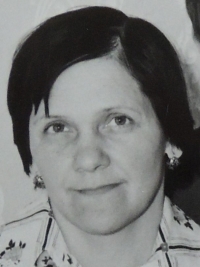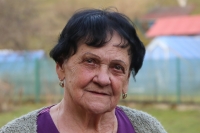I was told to say goodbye to my dad as he had been condemned to death

Download image
Milena Urbanová, née Holišová, was born on June 17, 1933 in Zubří in the Vsetín region. Father Josef worked as a construction manager, mother Františka took care of the household and the farm. During World War II, father helped partisans get supplies. His brothers-in-law were also involved in resistance activities. At the end of October 1944, three men pretending to be partisans spent a night in the Holišs´ house. On November 24, carrying out the anti-partisan operation Tetřívek, the Nazi Jagdkommando [hunting unit], under the personal command of K. H. Frank, invaded Zubří, encircling and closing the village. After a series of interrogations, both parents were detained and the Holiš family birth house was burned down. Mother Františka was then imprisoned by the Nazis in Kounicovy student residences in Brno, and father Josef Holiš was executed in Pankrác. At the end of April 1945, Františka Holišová was released from prison, until then her daughter lived with relatives. After the war, in 1947, Milena attended a primary school in Zubří, then a three-year winter farming school in Rožnov pod Radhoštěm. In 1950, she worked briefly in Bečvy, where she met her future husband Josef Urban. After the February coup, the surviving family was affected by collectivization of agriculture and monetary reform. Milena Urbanová changed professions several times. In the 1950s, she worked in the Zubří rubber factory, in the 1960s in Tesla in Rožnov pod Radhoštěm, and since the 1970s in the Zubří cooperative cow house. She remained there until her retirement in 1983. At the time of recording the interview (2021), she was living in Zubří, in a house built in 1951 on the site where the family had lived until Herman Frank’s arrival.

